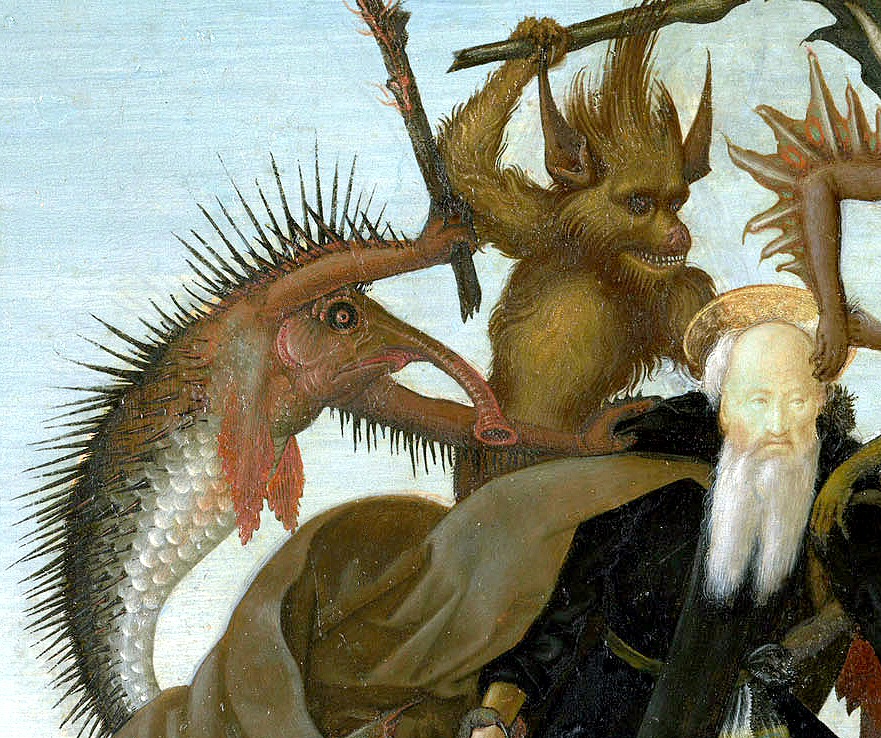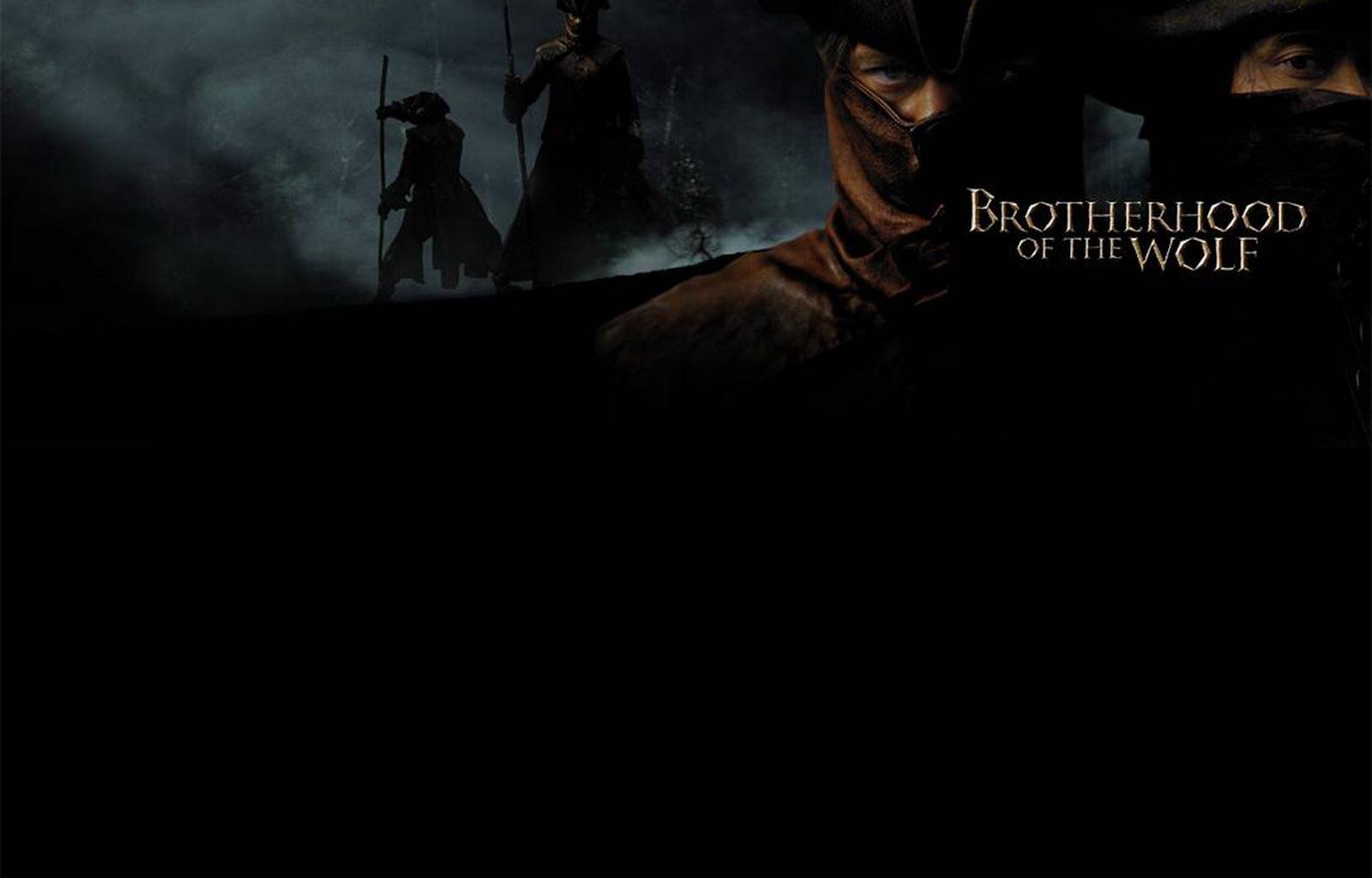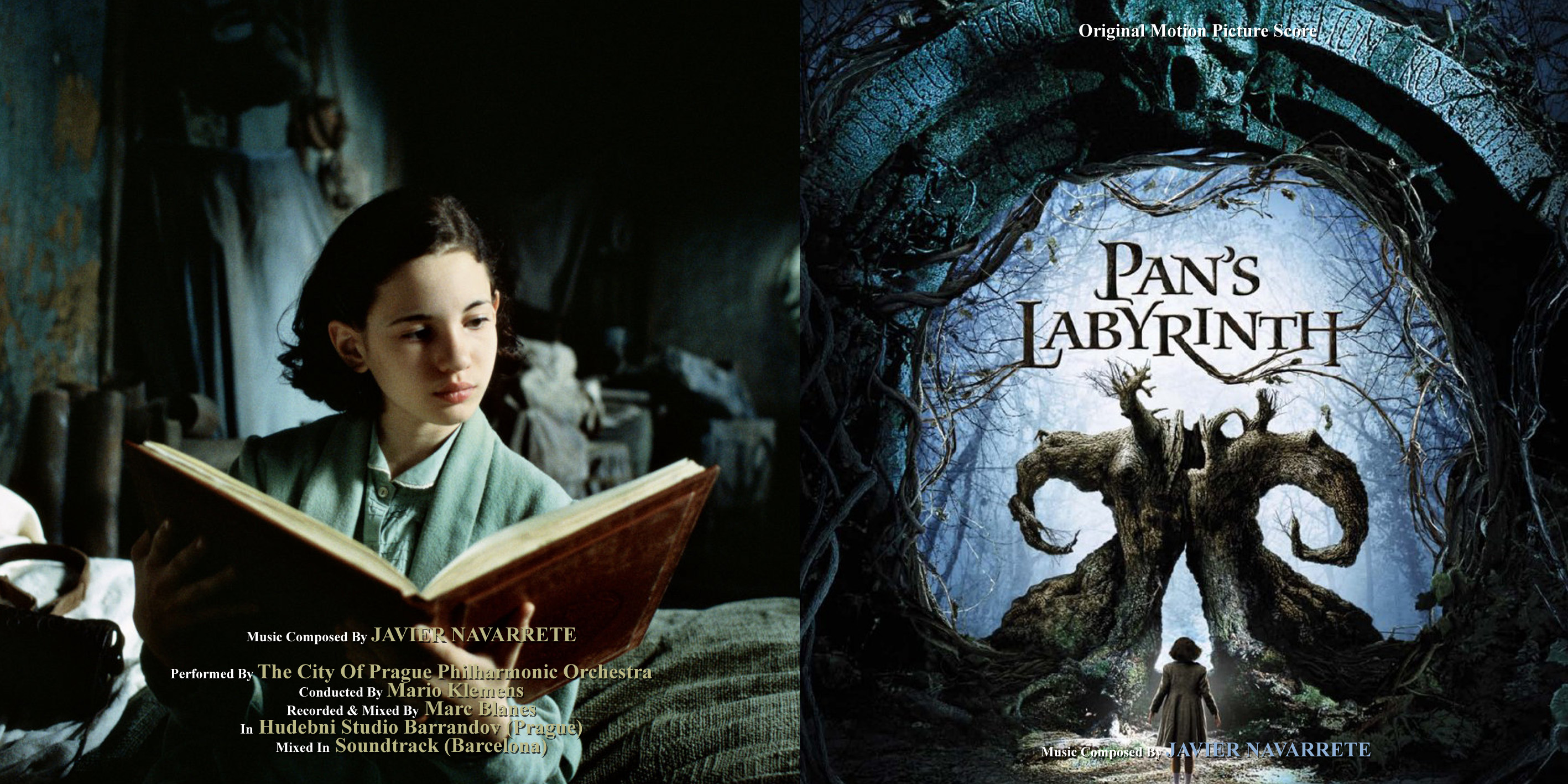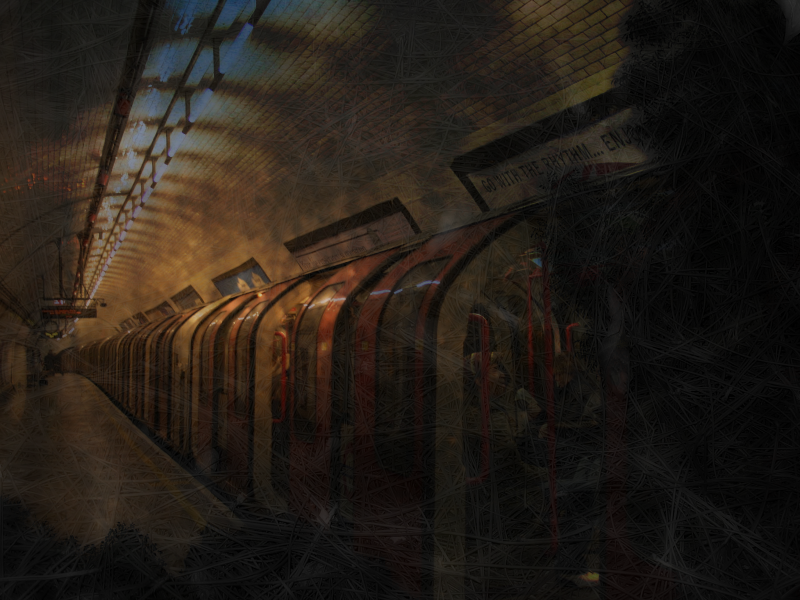
ENG505.001
Seminar in Medieval Literature
Medieval Supernatural
Prof. Eileen Joy
Fall 2012
Mondays 6:00 - 8:50 pm (Peck Hall 2406)

supernatural, adjective: (a) Belonging to a realm or system that transcends nature, as that of divine, magical, or ghostly beings; attributed to or thought to reveal some force beyond scientific understanding or the laws of nature; occult, paranormal; (b) More than what is natural or ordinary; unnaturally or extraordinarily great; abnormal, extraordinary.
~ Oxford English Dictionary
In a world which is indeed our world, the one we know . . . . there occurs an event which cannot be explained by the laws of this same familiar world. The person who experiences the event must opt for one of two possible solutions: either he is the victim of an illusion of the senses, of a product of the imagination -- and the laws of the world then remain what they are; or else the event has indeed taken place, it is an integral part of reality -- but then this reality is controlled by laws unknown to us.
~ from Tzvetan Todorov, The Fantastic: A Structural Approach to a Literary Genre
COURSE DESCRIPTION
In this course, we will explore the realm and representation of the supernatural and fantastic in: (1) the medieval world -- in its imaginative literature, but also in its philosophical, scientific, and religious contexts; (2) some classic theoretical texts (written by Bruno Bettelheim, Freud, Tzvetan Todorov, and Maria Warner); and (3) contemporary cinema. One aim will be to deepen our understanding of the various and complex ways in which medieval persons understood the terms "natural" and "supernatural," and following the lead of historian Robert Bartlett, we will start with the caveat that the belief systems of the Middle Ages were no more coherent than our own, but rather reflect overlapping zones of intellectual debate, difference, and even "discomfort." As this is primarily a literature course, another aim will be to investigate together the aesthetic-fictional structures and properties of supernatural figures, states, and worlds, and how the "natural" and "supernatural" inform each other in literary works. Related to this, the theoretical texts we read together will help us to reflect upon the psychological, philosophical, cultural, social, political and other uses of the supernatural and why and how they have endured over time, and this is why we will also delve into some contemporary works, such as the films The Exorcist, Le Pacte des Loups [Brotherhood of the Wolf], and Pan's Labyrinth, Neil Gaiman's novel Neverwhere (1996), and portions of historian Scott Poole's new book Monsters in America: Our Historical Obsession with the Hideous and Haunting (2011). This course will therefore hopefully serve as both an immersion in medieval literature and intellectual history on the supernatural, as well as a more broad cultural studies primer on the role of the supernatural in the imaginative arts over time that will ideally also help us to approach the question of realism and unrealism in literature from fresh perspectives.
As this is a senior-level literature course, preparing for and participating in class are vitally important to your ultimate success, and therefore, your contribution to in-class discussions as well as your attendance record will be factored into your final grade. Although I will provide much guidance and commentary, this is a discussion-, not a lecture-centered, course, and therefore students must come to class prepared with critical questions and comments related to the readings and films under discussion. As this is also a reading-intensive course, not keeping up with the reading could be extremely detrimental to your progress and final evaluation. One final (but important) word: coming to class without the texts under discussion will be automatic grounds for dismissal from that particular class period (and will count as an absence).

REQUIRED RENTAL TEXTS (available at SIUE Textbook Service)
GRETTIR'S SAGA. Trans. Jesse Byock. Oxford World's Classics, 2009. ISBN# 978-0192801524.
THE LAIS OF MARIE DE FRANCE. Trans. Glyn S. Burgess and Keith Busby. Penguin Classics, 2nd edition, 1999. ISBN# 978-0140447590.
Burton Raffel. SIR GAWAIN AND THE GREEN KNIGHT. Signet Classics, 2009. ISBN# 978-0451531193.
John Mandeville. THE TRAVELS OF SIR JOHN MANDEVILLE. Penguin Classics, revised edition, 2005. ISBN# 978-0141441436.
Neil Gaiman. NEVERWHERE: A NOVEL. William Morrow, 2003. ISBN# 978-0060557812.
OTHER TEXTS (Google Docs)
Primary>
Jacobus de Voraigne. The Golden Legend, trans. Christopher Stace. Penguin Classics. Penguin Classics, 1998.
Julian of Norwich. Revelations of Divine Love, trans. Clifton Wolters. Penguin Classics, 1966.
Secondary>
Robert Bartlett. The Natural and the Supernatural in the Middle Ages. Cambridge University Press, 2008.
Bruno Bettelheim. The Uses of Enchantment: The Meaning and Importance of Fairy Tales. Vintage Books, 1975.
Caroline Walker Bynum. "Why All the Fuss about the Body? A Medievalist's Perspective." Critical Inquiry 22.1 (1995): 1-33.
Sigmund Freud. Totem and Taboo, in The Basic Writings of Sigmund Freud, ed. and trans. A.A. Brill. The Modern Library, 1995.
Sigmund Freud. The Uncanny, trans. David McLintock. Penguin Classics, 2003.
W. Scott Poole. Monsters in America: Our Historical Obsession with the Hideous and Haunting. Baylor University Press, 2011.
Tzvetan Todorov. The Fantastic: A Structural Approach to a Literary Genre, trans. Richard Howard. Cornell University Press, 1975.
Marina Warner. Monsters of Our Own Making: The Peculiar Pleasures of Fear. University Press of Kentucky, 1998.
COURSE REQUIREMENTS
1 CRITICAL PAPER, 12-15 pages, MLA-style format and documentation (50%)*
A two-part project: an annotated bibliography (due by end of October) and a critical research paper. The bibliography is for the purposes of demonstrating what you have been reading & skimming outside of required class readings, and from which you are expected to have begun to formulate some leading questions for your critical paper. I will meet with each student individually to discuss the bibliography and possible directions for the paper. In the paper, you are expected to develop your own questions, subject matter, and approaches; introduction of secondary texts, critics, and ideas is required. This paper should deliver an original critical perspective and argument, and it should situate its argument in the context of the intellectual ideas encountered in course readings and class discussion, supplemented by additional secondary research. Your argument must be primarily grounded in an analysis of at least one medieval literary text, which can be chosen from our syllabus (or even from your own readings in literature outside of this and other courses) -- the key here is: I have to approve the text, or texts, chosen, and they should be as appropriate as possible in relation to the themes of this course. The primary literary text can also be supplemented by one or more films. This paper can in NO way be what is called an "explanatory" research paper or "literature review" in which you simply provide an overview or summary of an author's work and/or career, or a survey of criticism on a particular author's work. To help you get started, go HERE for a working bibliography of sources relevant to the subjects under discussion in this course. For help with writing about literature, go here and here. For help with MLA-style research documentation and citation, go here.
SHORT READING RESPONSES (6 total = 40%)
To facilitate class discussion, you will write on occasion short responses (roughly in the neighborhood of 2-3 typed, double-spaced pages) to weekly readings. These short reading responses don't begin until after we've acclimated ourselves (typically in the third or fourth week of the course -- see Schedule of Events below), and they are not due in the last few weeks of the course, in order to give you more time to devote to your critical paper. It is expected that, in these responses, you will critically engage the texts under discussion in relation to the ideas raised in class discussions and in relation to any ideas and/or texts encountered in other courses that might be relevant. These short responses will aid you in developing close reading skills and critical writing techniques that are crucial to your success with the longer critical paper, and it is imperative that these short responses NEVER do the following: a) merely summarize the reading; b) detail what you "like" or "don't like" about the reading, with no seriously critical commentary; c) evaluate the author's skill as a writer according to your personal aesthetic criteria; or d) use the reading as a point of departure for a discussion of something that has nothing to do with the reading or discussions in class.
PARTICIPATION (10%)
As stated above under "Course Description," participation is vital to your success in this course. That means having a good attendance record, coming to class prepared to discuss the readings (with book or books in hand), and actively contributing to critically engaged conversations with your professor and peers. Each student will also be asked to lead one discussion related to a specific primary and/or secondary reading.
LATE ASSIGNMENT POLICY
I do not accept late assignments. Period. If there is an extraordinarily good reason for needing an extension on a due date, let me know in advance, and we will work it out.
ATTENDANCE POLICY
Attendance, promptness, and participation are essential to success in college courses. Faculty members recognize that unexpected occasions may arise when a student must be absent from class, but my general attendance policy is that if you are absent more than the number of required class sessions per week (in this case, that would be more than 2 sessions), I have the option of lowering your final course grade by one letter grade for each additional session missed. Furthermore, if absences become excessive (more than two weeks' worth of sessions), the SIUE Registrar, at my request, reserves the right to withdraw you administratively. For more information on this, please consult the following: SIUE Class Attendance Policy. Failure to attend class in a responsible and committed manner may thus be grounds for failure in or administrative withdrawal from the course.
ACADEMIC DISHONESTY
Any student found engaging in an act of academic dishonesty will be promptly dismissed from the course with a grade of "F." By "academic dishonesty," I mean PLAGIARISM (the act of representing the work of another as one's own), which the University considers a grave breach of intellectual integrity. All definitions, terminology, concepts, and patterns of organization taken from an outside source must be identified and given credit in any essay or exam you write--whether it be for the English department or any other department. For more detailed information on this, please consult the following: SIUE Plagiarism Policy.
DISABILITY ACCOMMODATIONS
If you feel that you are entitled to special accommodations (for example, a volunteer note-taker, interpreter, special desk, or extra time on tests), please contact the Disability Support Services office in Rendleman Hall #1218 (Phillip Pownall, Director), or visit their website, and they will help you fill out the necessary paperwork.

SCHEDULE OF EVENTS (subject to revision as semester progresses)
| Week 1 | Monday: Aug. 20 | Introduction to Course |
* * Icelandic/Fascist Macabre * * |
||
| Week 2 | Monday: Aug. 27 | Read: |
| Grettir's Saga (chaps. 1-49) | ||
| Todorov, "Definition of the Fantastic," from The Fantastic (Chap. 1: pp. 24-40) | ||
| Week 3 | Monday: Sep. 3 | No Class -- Labor Day Holiday |
| Read: | ||
| Grettir's Saga (chaps. 50-93) | ||
| Warner, "The Devil's Banquet," from Monsters of Our Own Making (pp. 95-115) | ||
| View: | ||
| Pan's Labyrinth (film) | ||
| "Fantasy is not an escape for Ofelia but a dark refuge. There is something vaguely embryonic about all the magic environments because I believe that fairy tales are ultimately about two things: facing the dragon or climbing back to our world inside." ~ Guillermo del Toro, discussing Pan's Labyrinth | ||
| Week 4 | Monday: Sep. 10 | Discuss: |
| Grettir's Saga & Pan's Labyrinth | ||
* * Pagan Magic * * |
||
| Week 5 | Monday: Sep. 17 | Read: |
| Sir Gawain and the Green Knight | ||
| Todorov, "The Uncanny and the Marvelous," from The Fantastic (Chap. 2: pp. 41-57) | ||
| Freud, "Animism, Magic and the Omnipotence of Thought," from Totem and Taboo (pp. 833-851) | ||
| response paper due | ||
* * Breton [and other] Shapeshifters * * |
||
| Week 6 | Monday: Sep. 24 | Read: |
| Marie de France, Lais (I-VI) | ||
| Bartlett, "The Boundaries of the Supernatural," from The Natural and the Supernatural in the Middle Ages (Chap. 1: pp. 1-33) | ||
| response paper due | ||
| Week 7 | Monday: Oct. 1 | View: |
| Le Pacte des Loups (film) | ||
| Week 8 | Monday: Oct. 8 | Read and Discuss: |
| Le Pacte des Loups + Marie de France, Lais (VII-XII) | ||
| Bettelheim, "Fairy Tale versus Myth: Optimism versus Pessimism" & "The Importance of Externalization: Fantasy Figures and Events," from The Uses of Enchantment (pp. 35-41 & 61-66) | ||
| response paper due | ||
| Week 9 | Monday: Oct. 15 | Read & Discuss: |
| Marie de France, Lais (I-XII) | ||
| Bynum, "Why All the Fuss About the Body? A Medievalist's Perspective" (Critical Inquiry article) | ||
| response paper due | ||
* * Mystics, Martyr-Saints, and Demons * * |
||
| Week 10 | Monday: Oct. 22 | View: |
| The Exorcist (film) | ||
| Week 11 | Monday: Oct. 29 | Read: |
| Julian of Norwich, Revelations of Divine Love [excerpts] | ||
| Jacob de Voraigne, The Golden Legend [excerpts] | ||
| Todorov, "Themes of the Self" & "Themes of the Other," from The Fantastic (Chaps. 7 & 8: pp. 107-139) | ||
| response paper due | ||
| Week 12 | Monday: Nov. 5 | Read: |
| Freud, "The Uncanny" (pp. 123-162) | ||
| Discuss: | ||
| The Exorcist & Norwich + Golden Legend | ||
* * Hauntings * * |
||
| Week 13 | Monday, Nov. 12 | Read and Discuss: |
| Poole, "Introduction: The Bloody Chords of Memory," "Monstrous Beginnings," & "Haunted Houses," from Monsters in America, pp. 1-52 & 167-191 | ||
| Week 14 | Nov. 19-23 | No Class -- Holiday Break |
* * Marvels and Wonders * * |
||
| Week 15 | Nov. 26 | Read and Discuss: |
| Mandeville's Travels | ||
| Bartlett, "Dogs and Dog-Heads: The Inhabitants of the World," from The Natural and the Supernatural in the Middle Ages (Chap. 3: pp. 71-110) | ||
| Extras: | ||
| John Mandeville (Wikipedia) | ||
* * Underworlds/Wormholes * * |
||
| Week 16 | Dec. 3 | Read and Discuss: |
| Neil Gaiman, Neverwhere | ||
| Final Exams Week | Dec. 10-14 | Critical Paper Due: Friday, Dec. 14th (emailed to: eileenajoy@gmail.com) |
